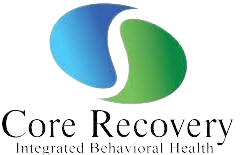From New Year’s resolutions to Dry January, quitting alcohol is one of the most common commitments people make when the calendar changes. But you can make that change whenever the time is right for you — even if Dry January is long since over. If you’re one of the thousands of people looking to improve your life by giving up drinking, these alcohol cessation tips may help you achieve your goals.
Knowing Your Triggers
People consume alcohol for many different reasons, from stress to the need for a social lubricant. Figuring out why you drink is the first step to making other choices.
Social Lubrication
If you’re a social drinker, consider the role alcohol plays in your social group. Maybe drinking has become a go-to Friday or Saturday night activity, and it’s time for something new.
Alternatively, are you drinking to feel more comfortable socially? Alcohol can reduce your inhibitions, but it also takes away some of your control. Pay attention to when you feel the need for a “relaxing” drink, and think about what else could make you feel more comfortable.
Mental Health
If you drink to avoid uncomfortable feelings, identify what those feelings are and when they happen. You might be able to think of more constructive coping skills, like journaling or meditation. Commit to trying those ideas the next time you feel the need to drink. Be compassionate with yourself and remember that sometimes the big feelings that drive you to drink are too big to manage alone. Research shows that about 50% of people with a substance addiction also have mental health conditions like anxiety, depression, trauma, and grief. Reach out to a therapist who can help you figure out what’s going on and start feeling better — without alcohol.
Reducing Temptation
Alcohol can become a part of your life in ways you don’t even notice. When you’re trying to quit drinking, that translates to more temptations you don’t need. The more of those everyday temptations you can eliminate, the fewer urges you’ll have to fight.
Empty Your Liquor Cabinet
Having alcohol within easy reach is unnecessarily stressful. If you’re craving a drink and all you have to do is open the fridge or reach the high shelf, the burden falls completely on your strength of will.
Make things easier on yourself. Throw or give away all the alcohol you have in the house, and ask guests not to leave any behind when they come over.
You can even ask people not to bring alcohol to your house at all. It’s a great way to bring up the fact that you’re trying to quit drinking. Your friends may have some alcohol cessation tips of their own to share.
Choose Alternative Activities
Think about your routine and when you’re most likely to have a drink. If you can anticipate those temptations, you can rework your routine so alcohol is less of a presence.
For example, if you go out to a bar with friends after work, find out if they’d be willing to visit a local cafe instead. Or suggest something completely new and exciting, like pottery painting or rock climbing. Exercise is healthy too!
Build Social Supports
Avoiding alcohol is much easier when people in your life are there to help. Mention to a few trusted friends and family members that you’re planning to quit drinking. If they’re caring and supportive about the announcement, ask them for encouragement.
If people are less than supportive, now could be the time to nurture new friendships. You could:
- Invite a coworker or neighbor for a walk or coffee
- Take a class and strike up conversations with people who share your interests
- Join an app like Meetup and find group activities that don’t involve alcohol
Surround yourself with people who support your goals. Those are the people you want in your life anyway.
Fighting the Urge to Drink
There will always be times when temptation rears its ugly head. Don’t beat yourself up if drinking feels more tempting sometimes. It doesn’t mean you can’t quit!
Instead, have a backup plan that makes avoiding alcohol feel less like deprivation and more like a positive choice for health.
Set Goals and Reward Yourself
Quitting alcohol can be a big step, especially if drinking is part of your routine. Set yourself up for success by starting small and working your way up to a dry lifestyle. For example:
- Commit three or four alcohol-free days per week
- Allow yourself a few drinks on Friday or Saturday night
If you succeed at your first goal, try reducing your number of drinks per evening or adding an alcohol-free day to the week. Keep cutting back until you’ve achieved your sobriety goal.
Have a Backup Beverage
Giving something up is difficult without a replacement. It’s why chewing gum is popular with ex-smokers — the act of chewing and the flavor of the gum distracts them and gives them a sensory experience to enjoy.
Find something non-alcoholic you look forward to drinking. Sparkling water with cranberry juice is a popular alternative at most bars and restaurants. “Virgin” cocktails, Shirley Temples, and even regular sodas are also fun to drink and can give you something to sip on when everyone else is drinking.
If You’re Struggling to Quit
Alcohol is an addictive substance and a deeply ingrained part of modern Western culture. It’s hard for almost everyone to quit—but it’s harder for some than others.
For people with alcohol dependency or addiction, quitting can feel impossible. Attempts to stop completely can cause alcohol withdrawal symptoms. These symptoms range in severity and may include:
- Anxiety, nervousness, or jumpiness
- Shaking
- Sweating
- Headaches
- Nausea or vomiting
Nausea or vomiting Alcohol withdrawal symptoms are uncomfortable and scary. They can make even the best alcohol cessation tips feel impossible to follow, but you can manage them with support.
If you think you might have an alcohol dependency, seek medical advice before trying to quit. A health professional can steer you toward the right addiction support services and even prescribe medication to stop withdrawal symptoms.
Taking the First Step
Reducing your alcohol intake can be a healthy choice for many reasons, from improved mood stability to better sleep quality. Set yourself up for success by following the tips outlined here, and know that many other people are on the same journey.
If you think you might have a more serious alcohol problem, or if your journey to quitting raises mental health issues, Core is here to help.
Core Recovery offers individualized treatment and support programs, from intensive outpatient to partial hospitalization and beyond. Our qualified medical team can help you find the right treatment plan and support you every step of the way.
Reach out today and learn about the programs available to you, and take heart in knowing you have a dedicated team on your side.






 In CA By O360®
In CA By O360®